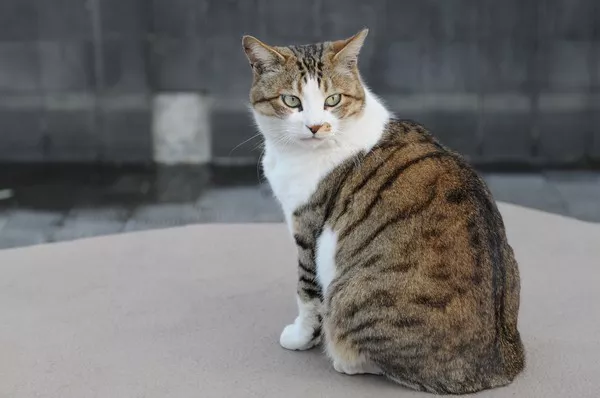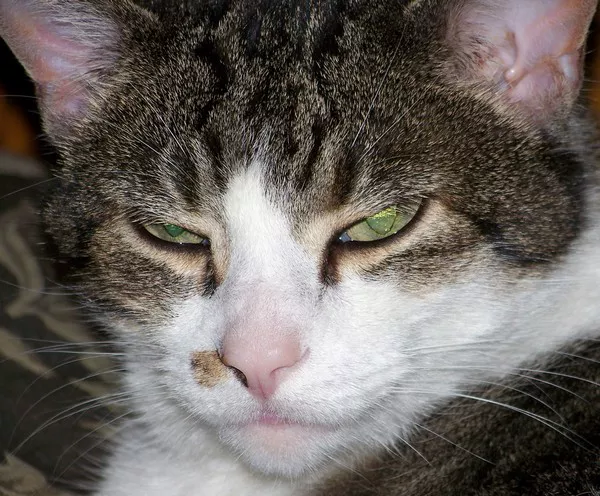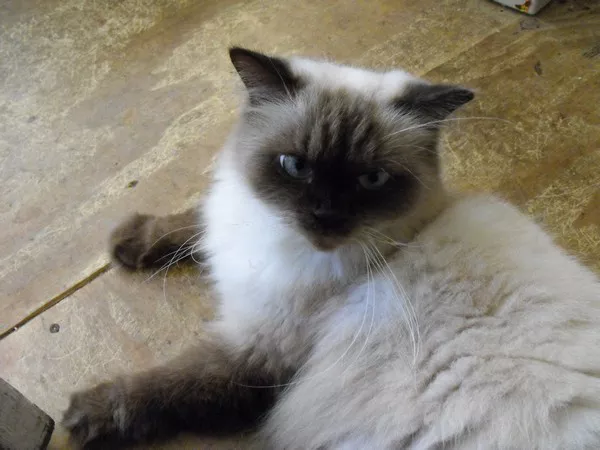Cats are beloved pets known for their independent nature and discerning tastes. However, as any cat owner knows, they can be prone to occasional bouts of vomiting, especially after eating. While the occasional regurgitation may not be cause for concern, frequent vomiting can indicate an underlying issue that requires attention.
In this article, we’ll explore ten potential reasons why your cat may be throwing up after eating. From dietary indiscretions to medical conditions, understanding the possible causes can help you better care for your feline companion.
10 Reasons Why Your Cat Throws Up After Eating
1. Dietary Indiscretions:
Cats are curious creatures, and their natural instinct to explore can sometimes lead them to consume things they shouldn’t, such as foreign objects, toxic plants, or spoiled food. Eating something indigestible or harmful can irritate the stomach lining, leading to vomiting. It’s essential to keep potentially dangerous items out of your cat’s reach and monitor their environment to prevent accidental ingestion.
2. Food Allergies or Intolerances:
Just like humans, cats can develop allergies or intolerances to certain foods or ingredients. Common allergens in cat food include beef, dairy, and grains. If your cat is allergic or intolerant to an ingredient in their diet, it may cause digestive upset, including vomiting. Switching to a hypoallergenic or limited ingredient diet may help alleviate symptoms and improve your cat’s overall health.
3. Hairballs:
Cats are meticulous groomers, and as they groom themselves, they inevitably swallow loose fur. While most of the swallowed fur passes through the digestive system without issue, some may accumulate in the stomach and form hairballs. When a hairball becomes too large to pass through the digestive tract, it can trigger vomiting as the cat tries to expel it. Regular grooming and hairball control products can help reduce the frequency of hairballs and associated vomiting.
4. Rapid Eating:
Some cats have a tendency to eat their food too quickly, especially if they are in a multi-cat household or have experienced food insecurity in the past. Rapid eating can lead to overeating, indigestion, and vomiting shortly after meals. Slow feeder bowls or puzzle feeders can help slow down fast eaters and encourage healthier eating habits.
5. Gastrointestinal Disorders:
Chronic gastrointestinal disorders, such as inflammatory bowel disease (IBD) or gastritis, can cause vomiting in cats. These conditions often involve inflammation of the digestive tract, which can lead to symptoms such as vomiting, diarrhea, and weight loss. If your cat frequently vomits after eating and exhibits other signs of gastrointestinal distress, consult your veterinarian for a proper diagnosis and treatment plan.
6. Pancreatitis:
Pancreatitis is a condition characterized by inflammation of the pancreas, an organ responsible for producing digestive enzymes. In cats, pancreatitis can cause vomiting, diarrhea, abdominal pain, and lethargy. Certain dietary factors, such as high-fat diets or sudden changes in diet, can trigger pancreatitis in susceptible cats. Treatment typically involves supportive care, including fluid therapy and pain management, under the guidance of a veterinarian.
7. Food Sensitivities:
While food allergies typically involve an immune response to specific ingredients, food sensitivities can cause gastrointestinal symptoms such as vomiting, diarrhea, and bloating. Cats with food sensitivities may not have a true allergic reaction but may experience digestive upset when exposed to certain foods or ingredients. Identifying and eliminating trigger foods from your cat’s diet can help manage symptoms and improve their overall well-being.
8. Infections or Parasites:
Infections with bacteria, viruses, or parasites can cause vomiting in cats, particularly if the gastrointestinal tract is affected. Common culprits include feline panleukopenia virus, feline coronavirus, and gastrointestinal parasites such as roundworms or hookworms. If your cat vomits frequently and exhibits other signs of illness, such as lethargy or decreased appetite, consult your veterinarian for appropriate testing and treatment.
9. Toxicity:
Cats are sensitive to many common household toxins, including certain plants, medications, and chemicals. Ingestion of toxic substances can lead to vomiting, diarrhea, neurological symptoms, and even death in severe cases. Common household hazards for cats include lilies, antifreeze, household cleaners, and certain human medications. If you suspect your cat has ingested a toxic substance, seek veterinary care immediately.
10. Underlying Medical Conditions:
Chronic medical conditions such as kidney disease, liver disease, hyperthyroidism, or diabetes can manifest with vomiting as one of the symptoms. These conditions may cause metabolic imbalances or organ dysfunction, leading to gastrointestinal upset and other symptoms. If your cat vomits frequently or exh
ibits other signs of illness, such as changes in appetite or behavior, it’s essential to consult your veterinarian for a thorough evaluation and appropriate management.
See Also: Diarrhea and Vomiting in Kittens
Conclusion:
While occasional vomiting is normal for cats, frequent or persistent vomiting should not be ignored. It’s essential to monitor your cat’s overall health and behavior and seek veterinary care if you notice any concerning symptoms. By identifying and addressing the underlying cause of your cat’s vomiting, you can help ensure they enjoy a happy and healthy life by your side.
























